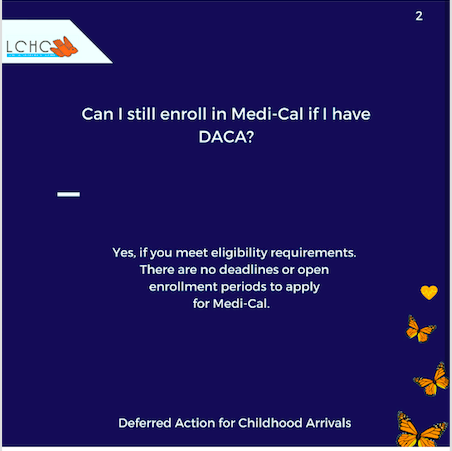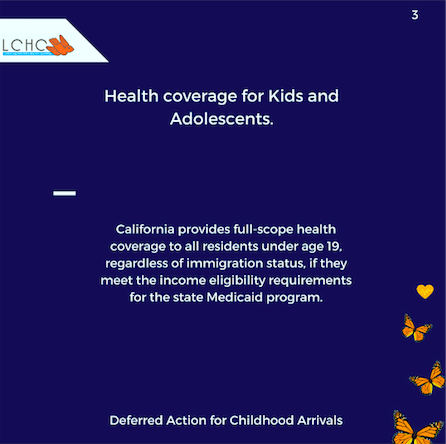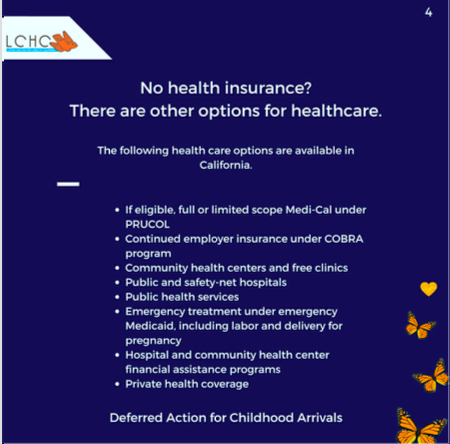What we should know about DACA
- Ana Chong
- Oct 13, 2017
- 3 min read
The Deferred Action for Childhood Arrivals also known as DACA has been in effect since June 15, 2012. The program allows for certain individuals, under certain guidelines, to have a two-year renewal process for temporary protection status as well as work authorization (USCIS, n.d.). Within the lapse of five years according to a Pew Research Center study (2017) nearly 790,000 individuals have received work authorization and work permits through DACA . On September 5, 2017, the current presidential administration announced DACA would be rescinded. Donald Trump’s Twitter response being, "Congress now has 6 months to legalize DACA (something the Obama Administration was unable to do). If they can't, I will revisit this issue!" - leaving congress the task to find a legislative solution. After the announcement, DACA beneficiaries whose work permits were to expire on or before the March 5, 2018 deadline (within the six-month time-frame) were urged to complete their renewal by October 5, 2017.
It has been about a week since the deadline has passed and renewals and/or new applications are no longer being accepted by USCIS. For individuals who were unable to renew their DACA or did not fall within the renewal process, the Cato Institute (2017) reports that an estimated 32,686 work permits will expire each month after the March 5th deadline, with an overall 592,00 permits expiring altogether.
The information provided below will in hopes be beneficial and informative to address information regarding DACA. From quick facts and how DACA does not affect accessibility to medical care to bills passed within California to address concern and fear within immigrant communities.
Below is quick chart of dates and according to USCIS. It is important to note that for DACA beneficiaries their deferred action and work authorization will be in effect until its expiration date.

https://www.uscis.gov/daca2017
With the DACA program being canceled unless a legislative action is passed, for our clients sharing the following information to address concerns regarding their medical needs the following information can be beneficial to pass on.
http://mailchi.mp/lchc/act-to- advance-health- justice-in- ca-804641?e=d41f4a0abe
Within California to express the fear and concern expressed by immigrant communities’ certain bills were passed. California was declared a Sanctuary State by Governor Brown on October 5th, 2017. Governor Brown signed SB 54 known as the California Values Act. The bill limits who state and local law enforcement agencies can hold, question, and transfer at the request of federal immigration authorities. This bill goes into effect the January 1, 2018. Below is a list of bills that have also been passed within California. For further information, the California Immigrant Guide as well the Latino Coalition for a Healthy California can be accessed.
SB 29 (Lara) Dignity Not Detention bill, which blocks the expansion of for-profit detention of immigrants in California.
SB 68 (Lara) A Public Education bill that makes undocumented students at community college and other programs eligible for in-state tuition and financial aid.
AB 291 (Chiu) Housing: immigration bill which prohibits landlords from reporting undocumented renters.
AB 699 (O’Donnell) Educational equity: immigration and citizenship status, which prohibits immigration agents from entering K-12 campuses.
Ab 343 (McCarty) This bill exempts students who have been granted special immigrant visas from paying nonresident tuition at the California Community Colleges.
AB 450 (Chiu) Employment regulation which prohibits immigration agents from entering a workplace or viewing employee files without a subpoena.
SB 257(Lara) Which allows deported parents to name another adult to serve as a representative and emergency contact for the child at school.
AB 21, (Karla) Which directs colleges to develop and enforce policies to protect and provide services to undocumented students.
The events that will proceed the September 5th decision are still unfolding. However, at this present time for those who are allies, DACA recipients, and overall as social workers it's essential to be informed and continue to do our part in ensuring the basic right of safety and well-being for those affected by the current news. We have the ability to create a safe space for our peers, clients and their family members who may be affected by the DACA being canceled. Although many will not be directly affected, let us remember that on a broader scale, the impact will be felt. Lastly, I would like to leave everyone with this quote:
“Every great dream begins with a DREAMER. Always remember, you have within you the strength, the patience, and the passion to reach for the stars to change the world.” -Harriet Tubman










Comments